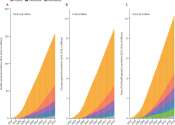Study finds COVID-19 vaccine can help people with heart failure live longer
Heart failure patients who are vaccinated against COVID-19 have an 82% greater likelihood of living longer than those who are not vaccinated, according to research presented at Heart Failure 2024, a scientific congress of ...
6 hours ago
0
0









